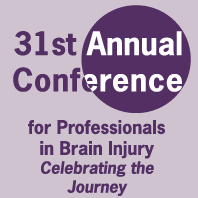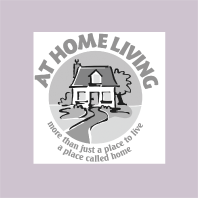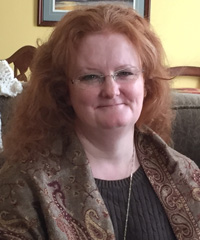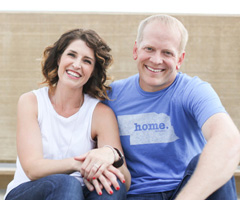
Thank you to our 31st Annual Conference Partners:



Thank you to our Diamond Sponsors:


Thank you to our Gold Sponsors:







Thank you to our Silver Sponsors:









Thank you to our Bronze Sponsors:
A Chance to Grow
Accessible Space
Accurate Home Care
ACR Homes
AmRamp
Beyond Barriers
Community Involvement Programs
DHS-Moving Home Minnesota
Dungarvin Minnesota LLC
Epilepsy Foundation of Minnesota
Essentia Health/Miller Dwan Rehabilitation
Glesener's INC
Handi Medical Supply
IMED Mobility
Integrity Living Options, Inc.
Karcher Foser Services, Inc.
Lutheran Social Service of Minnesota
Mary T
Mom's Meals
Opportunity Partners
Provide Care Inc.
Restart
TBI Residential and Community Services
True Friends
UCARE
Vinland National Center
Wing House
Sponsorships are available for our upcoming 31st Annual Conference. Call Jarett at 612-378-2742 or 800-669-6442, or click here to e-mail.
2277 Highway 36 W, Ste 200, Roseville, MN 55113
Phone: 612-378-2742
Toll Free: 1-800-669-6442
Fax: 612-378-2789
E-Mail:info@braininjurymn.org
2016 Annual Conference - Presentations
Presentations and Downloads • Keynotes •
Presentation Links
This page contains presentation handouts and/or slide shows that will be presented in each session and have been submitted to the Minnesota Brain Injury Alliance by the presenter(s). Each link will open the document in a new window. While a majority of the links are PowerPoints, some may be Word, Acrobat or other file formats. File format and size are posted following the links.
Thursday Conference Schedule
8 - 9 a.m. - Registration and Exhibits Open
- Exhibits are open daily 8 a.m. to 3:30 p.m.
8:45 - 9 a.m. - Opening Remarks
9 - 10:30 a.m. - Keynote Address
- Short and Long-Term Management of TBI-Related Symptoms

Kim Gorgens, PhD, ABPP, Associate Professor, Graduate School of Professional Psychology, and Executive Director, Center for Professional Development at the University of Denver
This engaging presentation will summarize the most effective management of the short (less than three months) and longer term (more than 12 months) sequelae of TBI using a real-world approach informed by decades of clinical practice, advocacy and state-of-the-science research. Recently a leader in the billion dollar brain-training industry was ordered to pay more than $2 million in fines to the Federal Trade Commission for deceptive advertising; it is incredibly difficult for consumers to know where to invest their time (and often money). In this presentation, only those interventions with demonstrable efficacy will be highlighted - together they constitute three broad categories of interventions. They include some traditional prescriptive treatments but more so, self-directed therapies. This presentation will review the outcome data supporting these interventions with particular attention to novel avenues of particular promise. Participants will be surprised to learn how much they may or may not already be supporting brain injury recovery.
File: PowerPoint - 5.6 Mb
10:30 - 11 a.m. - Break and Exhibits Open
11 a.m. - 12:15 p.m. - Breakout Sessions I
- Updates from Colorado: Criminal Justice and Brain Injury
Kim Gorgens, PhD, ABPP, Associate Professor, Graduate School of Professional Psychology, and Executive Director, Center for Professional Development at the University of Denver
This Presentation will provide an overview of a collaboration between the State of Colorado, The Denver Sheriff's Department, Denver Juvenile Probation, the University of Denver Problem-Solving Court, Adams County Veteran's Court, Division of Youth Corrections and Denver, Boulder, and Larimer County Jails to provide free neuropsychological and traumatic brain injury (TBI) screening to a population otherwise not served by those services and to develop programming to meet the needs identified in the assessment. This presentation will illustrate the prevalence within an incarcerated population of TBI, mental illness, substance abuse, and criminality as well the intersection of these risk factors that contributes to an increased risk for recidivism and other poor outcomes including family disruption and violence. It also will highlight the data gathered to date, interventional models for this most vulnerable correctional/judicial population, and plans for recidivism surveillance and long-term risk reduction.
File: PowerPoint - 1.3 Mb
- Without a Net: College for High functioning Survivors
Mike Strand, Here and Now Columnist
It took Mike almost 25 years before he felt he was ready to re-enter college. Even though he is very high functioning, he will never be "not brain injured." Mike shares lessons and experiences – some surprising, many that were hard won – as he pursued his BA. These are valuable insights for anyone helping others to succeed in college.
- Effects of Lifetime Case Management in Survivors of Moderate to Severe Brain Injury: Lessons from the Minneapolis VA Brain Injury Wellness Program
Diane Mortimer MD, MSN, Rehabilitation Physician; Shawn McLaughlin, PT, CKTP; Tamara Paulson, MSW, LICSW Minneapolis Veterans Affairs Health Care System
Survivors of moderate to severe brain injury face long-term challenges. Persistent sequelae and late effects of injury often require multifaceted treatments. Psychosocial difficulties can lead to additional problems. This session will cover how lifetime case management, provided by a collaborative interdisciplinary rehabilitation team, can minimize complications and optimize quality of life for these survivors.
File: PowerPoint File A - 1.2 Mb
File: PowerPoint File B - 1.2 Mb
- Aging with Traumatic Brain Injury
Min Jeong Park, Staff Physician, Hennepin County Medical Center
Traumatic brain injury is not just an event, similar to a broken bone that will heal over time; traumatic brain injury is a chronic disease impacting multiple organ systems. The presentation will be focused on acute and chronic complications after TBI, chronic traumatic encephalopathy and mortality after TBI.
File: PDF - 1 Mb
- Scientific and Clinical Implications of Vestibular Vertigo Post Brain Injury
Daniel Stam, PT, DPT, ATC, CBIS, Physical Therapist; Catherine Weiler, MD, PhD, Mayo Clinic
Complaints of dizziness following traumatic brain injury can present a complex differential casework, frequently requiring increased time to resolution while often passing unaddressed. However, if missed, treatable conditions such as benign paroxysmal positional vertigo may contribute to decreased quality of life, increased agitation and maladaptive neuroplasticity in the acute rehabilitation environment. This session will address these issues.
File: PowerPoint - 21.2 Mb
- Supporting Best Adjustment to Living Life with a Brain Injury
Janis Carey Wack, Brain Injury Clinical Specialist, REM Minnesota
Each person's definition of quality of life is highly personal. Following a brain injury, individuals and those that support them can focus on achieving that “personal best” with a variety of positive, person-centered approaches. This presentation discusses ideas for moving forward.
File: PowerPoint - 599 k
File: Microsoft Word - 13 k
File: Microsoft Word - 15 k
File: Microsoft Word - 47 k
- Improved Diagnostics for Improved Classification of Brain Injury
Uzma Samadani, Rockswold Kaplan Endowed Chair for TBI Research; Samuel Daly, Brain Injury Lab Researcher; Vikalpa Dammavalan, Brain Injury Lab Researcher, Hennepin County Medical Center
The current classification of brain injury as mild, moderate and severe is flawed because it does not predict who will recover fully versus who will need additional treatment. Our research group has used eye tracking and will be using other multimodal assessments (serum markers, imaging studies, etc.) to create a new schema for classification of brain injury. This schema will enable better testing of treatments for brain injury.
File: PowerPoint - 10.7 Mb
- Public Policy Legislative Update
Jeff Nachbar, Public Policy Director, Minnesota Brain Injury Alliance
This session will provide an update on the 2016 legislative session as it pertains to the priorities of the Alliance's advocacy efforts. Key topics will include the current status of Medical Assistance Reform efforts; funding status of health and human services in the state budget process; and progress on brain injury prevention policy. Other topics currently under consideration by legislators will also be highlighted.
- Text-to-Speech (TTS) Reading Technologies from No-Cost to Top Dollar
Brian Fay, PhD, ATP/SMS, RET, Director, Assistive Technology Program; David Schafer, MS, CCC-SLP, Speech and Language Pathologist, VA Medical Center
Individuals who have experienced a TBI may have difficulty in daily situations which require reading. This may include postal mail, email, newspapers, product labels, novels, magazines or textbooks. This session will focus on a variety of applications that use a smart phone, tablet or computer to convert text into speech.
File: PowerPoint - 633 k
- Non-Compliance versus Non-Adherence: Conceptualization and Treatment
Robert Karol, PhD, ABPP, CBIST, Vice President of Brain Injury Services, Welcov Healthcare
This session will address the difference between non-compliance and non-adherence. It will explore possible drivers of each behavior and how to conceptualize each condition. It will conclude with suggestions for treatment.
File: PDF - 338 k
- Key Findings of the Wilder Foundation 2015 Brain Injury Survey
Manfred Tatzmann, Chairman of TBI Advisory Committee; Francie Streich, Research Scientist, Wilder Foundation
This session will share with attendees the key findings of the Wilder Foundation brain injury survey, conducted in 2015 throughout Minnesota with survivors, caregivers, providers, counties, and tribes. This information or content and conclusions included in this report are those of the author(s) and should not be construed as the official position or policy of, nor should any endorsements be inferred by, HRSA, HHS, the U.S. Government, or the Minnesota Department of Human Services (DHS).
File: PowerPoint - 106 k
- An Introduction to Person-Centered Thinking
Anne Roehl, Project Coordinator, Research and Training Center of Community Living
The session provides an overview of Person-Centered Thinking (PCT) and how it compliments other person centered planning methods. We will review PCT tools and how they apply to the challenges we face. Explore how PCT can help you make a difference in the lives of those you serve as well as how it can help make your organization more person centered.
File: PowerPoint - 4 Mb
- Exhibits are open daily 8 a.m. to 3:30 p.m.
- Resilience: Bouncing Back after Brain Injury

Jeffrey S. Kreutzer, PhD, ABPP, FACRM, Rosa Schwarz Cifu Professor of Physical Medicine and Rehabilitation, and Professor of Neurosurgery and Psychiatry, Virginia Commonwealth University – Medical Center; Director, Virginia TBI Model System of Care
Traumatic brain injury often causes dramatic life changes. Some survivors do not fare well and face seemingly insurmountable challenges in trying to live independently, work and maintain positive relationships. Some are burdened with emotional distress in the form of anxiety and depression. On the other hand, a good number of survivors are resilient. They feel good about their lives despite having severe injuries and facing great challenges. They are able to find and keep jobs, live independently and maintain supportive relationships. This presentation will focus on resilience and identifying definitions of resilience and characteristics of resilient survivors. It will also detail strategies and empirically-based clinical interventions for improving resilience.
File: PDF - 2 Mb - Ambiguous Loss and Identity Reformulation after Brain Injury
Jeffrey S. Kreutzer, PhD, ABPP
Brain Injury often brings about a variety of unwanted life changes, uncertainty, and confusion for survivors and their family members. Adding to uncertainty are questions that emerge about the survivors' prognosis as well as the personality and identity changes that often follow injury. Some wives have been known to say. "I'm married to a stranger," or "I'm married, but have no husband." This presentation will explore the concept of ambiguous loss, a term initially applied in the field of family therapy. Family therapists have proposed that uncertainty about change and the family's future causes great distress and difficulty in adjusting to change. The writings of survivors and caregivers will be used to illustrate ambiguous loss and the post-injury challenges that often follow. Discussion will also focus on strategies to help family members appreciate common injury-related changes, identify situational positives, and learn to live with and like a person who may seem like a stranger.
File: PDF - 649 k
- The Americans with Disabilities Act and Employment
Cindy Held Tarshish, ADA Minnesota Program Manager, Metropolitan Center for Independent Living
This workshop will discuss and explore many aspects of employment and the ADA. Topics include: ADA overview, disability definition, interviewing and medical inquiries, disclosure, reasonable accommodations,undue hardship, resources and more. Questions are encouraged.
File: PowerPoint - 299 k
- Brain Injury and Homelessness
David Katzenmeyer, Outreach Program Supervisor; Kris Helgeson, Project Recovery Drop In Center Supervisor; Geoff Meyer, Homeless Services Division Director, People Incorporated Mental Health Services
Our presentation will focus on providing an overview of the culture of homelessness and street homelessness; the unique challenges faced by those experiencing both brain injury and homelessness; and techniques and strategies for engaging with clients experiencing homelessness and brain injury.
File: PowerPoint - 96 k
- A Whole Health Approach to Transitional Rehabilitation
Nancy Hildreth, PTRP Director; Hillari Olson, Physical Therapist; Aubrey White, Speech Pathologist; Missi Wendt, Recreational Therapist, Minneapolis VA Health Care System
This session will cover the integration of whole health concepts into the Polytrauma Transitional Rehabilitation Program (PTRP) within the Minneapolis VA Health Care System. We will discuss integrative health components, such as the Personal Health Inventory, mindfulness strategies, movement therapies, and non-pharmacological approaches to pain management.
File: PDF - 806 k
- Supporting Language and Cognition for Adults with Chronic Aphasia Through Pictures: What We Know and What We Don't
Jessica Brown, Assistant Professor, University of Minnesota-Twin Citie
The research regarding visual supports for adults with aphasia and clinical practice often misalign due to the workplace demands for rehabilitation professionals. This talk will focus on reviewing the current literature and providing recommendations for bridging the gap between research and therapeutic techniques highlighting the current challenges both sides face.
File: PowerPoint - 3.6 Mb
- The Burden of Care Following Hospitalized TBI
Leslie Seymour, Epidemiologist; Anna Gaichas, Biostatistician; Jon Roesler, Epidemiologist Supervisor; Mark Kinde, Director Injury and Violence Prevention Unit, Minnesota Department of Health
The Minnesota All Payers Claims Data provides all medical reimbursed claims submitted to the Minnesota Department of Health by third party payers. This data set along with the Minnesota TBI Registry will be used to describe the clinical services utilized and the true burden of hospitalized TBI in Minnesota.
- Prevention of Recurrent Stroke: An Evidence-Based Approach
Michelle Ullery, APRN, CNP, DNP, CWOCN-AP; Korinne Novak, APRN, CNP; Mark Ringo, APRN, CNP, DNP; Uche Amajuoyi, APRN, CNP, Courage Kenny Rehabilitation Institute Part of Allina Health
Each year in the United states, 795,000 people have a stroke; nearly one in four are people who have had a previous stroke (CDC, 2105). This session utilizes case studies to explore the practical application of evidence-based research to prevent stroke in patients with a prior stroke in the post-acute setting.
File: PowerPoint - 4.5 Mb
- A Second Chance: Expungement and Strategies for Overcoming Poor Criminal and Rental History
Paul Ziezulewicz, Staff Attorney; Meghan Scully, Staff Attorney, Southern Minnesota Regional Legal Services
Brain injuries can affect development of temperance, judgement, and impulses which may contribute to criminality. This session will explore how lack of housing can relate to these injuries; negative criminal and rental records as significant barriers to stable employment or housing; and how expungement and other legal strategies may assist TBI clients in need of a second chance.
File: PowerPoint - 1.1 Mb
- Concussion & Return to Learn: Developing a Plan That WORKS
Deb Williamson, Statewide School TBI Specialist, Minnesota Low Incidence Projects; Kari Lehman Briner, LICSW, Coordinator, Pediatric Brain Injury Program, Hennepin County Medical Center; Jessica Brown, Assistant Professor, University of Minnesota Twin Cities
The topic of childhood concussion and Return to Play has seized headlines since the Minnesota Concussion Law was enacted, but the equally important topic of Return to Learn is finally getting the respect it deserves. Learn how to create a comprehensive plan that will address student needs, accommodations, school services and supports.
File: PDF - 1.2 Mb
File: PDF - 3.6 Mb
File: Microsoft Word - 960 k
File: PDF - 71 k
File: Microsoft Word -28 k
File: PDF - 80
- Sexuality and Brain Injury
Robert Karol, PhD, ABPP, CBIST, Vice President of Brain Injury Services, Welcov Healthcare
This talk will overview selected topics in dating and then focus on issues in sexuality after brain injury. The presentation will cover issues persons with disabilities face in expressing sexuality and discuss how professionals can help.
File: PDF - 382 k
- I'm Alive: Courage, Hope, and a Miracle
Duke Pieper, Student, Bowing Green State University
Duke Pieper, an elite high school hockey player, suffered a cavernous hemangioma. He entered his first of multiple surgeries with a five percent chance survival rate. In his presentation, "I'M ALIVE: COURAGE, HOPE, AND A MIRACLE," Duke recounts his courageous struggle to survive, battling through months of paralysis, massive nerve damage, and countless setbacks. He not only survived, but now thrives; his incredible story is how to never give up and live life fearlessly.
File: PowerPoint - 419 k
- It's the Little Things – The Importance of the Details in Providing Positive Supports and Person Centered Planning
Jodi Greenstein, MSW, LICSW, CBIS, Supervisor, Behavioral Health Services; Sara Nuahn, MSW, LICSW, CBIS, Behavior/Positive Support Professional; Jennie Lee, CBIS, Behavior/Positive Support Analyst; Beth Childs, Behavior Positive Support Analyst, Courage Kenny Rehabilitation Institute
The importance of the details should not be overlooked in our work with the individuals we serve. This presentation will address the importance of the details when blending positive supports and person centered planning. Practical strategies for best practices will be provided in this panel discussion session.
File: PowerPoint - 756 k
12:15 - 1:15 p.m. - Lunch
1:15 - 2:30 p.m. - Breakout Session II
2:30 - 3 p.m. - Break and Exhibits Open
3 - 4:15 p.m. - Plenary Session
 If I Ran This Place . . . Would I Want To Live Here?: A Survivor's Perspective on Residential Care
If I Ran This Place . . . Would I Want To Live Here?: A Survivor's Perspective on Residential CareAudrey Nelson, MS, CSW
How would a person who has experienced brain injury run a company that provides residential care for individuals with brain injury? Audrey Nelson will share the lessons she has learned doing just that for the last 20 years at the company she owns and operates, Reality Unlimited, LLC. The first Adult Family Home was opened in 1995 and is named the Mike Wilson House. Audrey met Mike Wilson in 1983. He had had a brain injury in 1981. His many frustrations in trying to return to his community ended in suicide in 1990 and were much of the motivation to develop residential options that focused on the unique needs of individuals with brain injury.
File: PowerPoint - 7.9 Mb
Friday Conference Schedule
8 - 9 a.m. - Registration and Exhibits Open
8:45 - 9 a.m. - Opening Remarks
9 - 10:30 a.m. - Keynote Address
10:30 - 11 a.m. - Break and Exhibits Open
11 a.m. - 12:15 p.m. - Breakout Session I
12:15 - 1:15 p.m. - Lunch
1:15 - 2:30 p.m. - Breakout Session II
2:30 - 2:45 p.m. - Break and Exhibits Open
2:45 - 4 p.m. - Plenary Session
 Living through the unthinkable every day: The differing perspectives of a Mother and Father
Living through the unthinkable every day: The differing perspectives of a Mother and FatherBrandon Verzal, Tiffany Verzal
Since their daughter Alexis was the victim of abusive head trauma at daycare in 2008, Brandon and Tiffany Verzal have been tireless advocates for brain injury awareness, the importance of rehabilitation and child abuse prevention. Alexis's assault occurred at 14 months old, and was followed with seven years and thousands of hours of intense, specialized therapy. Her recovery has gone significantly beyond anything doctors ever imagined, but severe deficits remain that will impact her for the rest of her life.

